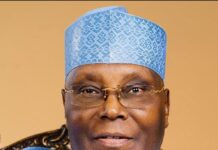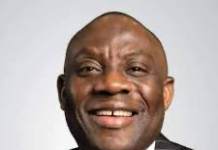NDLEA Boss Rallies African Counterparts to Raise Bar of Anti-Narcotic Fight
By Nafisat Bello
The Chairman of the National Drug Law Enforcement Agency (NDLEA), Brig. Gen. Mohamed Buba Marwa (rtd), has charged his counterparts across the continent to strengthen operational networks and raise the bar in the drug war.
Speaking at the opening ceremony of the 31st meeting of Heads of National Drug Law Enforcement Agencies, Africa (HONLAF) Marwa said the details of the 2023 world drug report present a huge challenge for Africa.
“Drug use disorders are harming health, including mental health, safety and well-being, while the harms caused by drug trafficking and illicit drug economies are contributing to many of these threats, from instability and violence to environmental devastation. Young people are using more drugs than previous generations, and the majority of people being treated for drug use disorders in Africa are under the age of 35. What is worse, the availability of treatment and other services has not kept pace with these developments, and women in particular are suffering from treatment gaps.
“The world drug problem, in all its forms and manifestations, affects all of us. The stakes are especially high for Africa. No one country can tackle a problem of this magnitude alone; just as well, the world drug problem cannot be tackled solely through international policymaking; it also requires effective implementation and collaboration among practitioners.
“This is where the HONLAF comes in. The meeting is very important, as it enables its parent body, the UN Commission on Narcotic Drugs, to learn about current regional drug trends, threats, and emerging challenges from practitioners and law enforcement experts, from all parts of the continent. We need regional perspectives to enrich the global policy discussion, and HONLAF is the opportunity to bring the African perspective to the global level. The sessions provide a platform to share knowledge and practices and learn from each other.
Read Also:
“The 31st meeting will indeed provide an opportunity for us to raise the bar and break new ground in different areas of our operations and collaborative efforts. I am as excited as a lot of us in this hall are to make presentations, listen to others, and share experiences that will positively shape our operations and redefine our cooperation at the end of this conference,” he said.
In his remarks at the ceremony, the Attorney General of the Federation and Minister of Justice, Lateef Fagbemi, SAN represented by the Director, International Criminal Justice Cooperation, Federal Ministry of Justice, Mrs. Nkiruka Jones-Nebo, said: “It is imperative that this conference remains proactive in addressing the legal complexities that may impede seamless cooperation in intelligence sharing, joint operations, and training. These barriers must be dismantled to prevent any loopholes that could potentially facilitate the activities of drug cartels operating across our borders. The Federal Ministry of Justice stands committed to providing unwavering support and efficient systems to empower NDLEA in its mission.”
Also speaking at the event, Country Representative of the United Nations Office on Drugs and Crime, UNODC, Oliver Stolpe, said the drug problem has changed from what it used to be 20 years ago.
“Today, the picture is different, local consumption is increasing, and increasingly problematic. We need a balanced approach to supply and demand reduction. We need to invest in prevention and in treatment. And, we need alternatives to imprisonment for drug users that are more effective and help decongesting prisons. At the same time, we need to strengthen cooperation between countries along drug trafficking routes with the aim of dismantling the ever more sophisticated trafficking networks,” he stated.
The Executive Director, UNODC, Ghada Fathi Waly and the Chairman, UN Commission on Narcotic Drugs who both spoke via video messages expressed support for the gathering and charged delegates to maximise the opportunities provided by the platform.
One of the highpoints of the ceremony was the presentation of a report on Organised Crime in Nigeria: A Threat Assessment (NOCTA) produced by the National Institute for Security Studies in collaboration with security agencies and supported by the UNODC.
Speaking on the report, Commandant of NISS, Ayodele Adeleke, said “With investigations to connect transit and production countries, the report is hoped to encourage other partnerships to create a coalition that fights organised crime in partnership and collaboration. We must not give up, let us give Nigeria the true future it deserves.”















